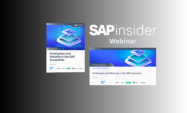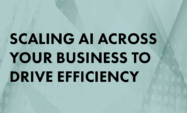SAP AI
Filter By
Browse By
- SAP Analytics and AI
- SAP Application Development and Integration
- All SAP Application Development and Integration
- SAP ABAP
- SAP ABAP Development Tools
- SAP ABAP Test Cockpit
- SAP API Management
- SAP BAPI
- SAP Basis
- SAP BRF
- SAP Business Application Studio
- SAP CMS
- SAP Design Studio
- SAP Development Tools
- SAP DevOps
- SAP EAI
- SAP EDI
- SAP Extension Suite
- SAP Fiori
- SAP Fiori Elements
- SAP Integration Suite
- SAP Low Code Application Development
- SAP Low Code Automation
- SAP Netweaver
- SAP Release Management
- SAP UI5
- SAP Web Application Server
- SAP Web IDE
- SAP Business Process Management
- SAP Center of Excellence
- SAP CIO
- SAP Customer Experience
- SAP Data and Data Management
- All SAP Data and Data Management
- SAP BW
- SAP BW/4HANA
- SAP Crystal Reports
- SAP Data Archiving
- SAP Data Center
- SAP Data Governance
- SAP Data Integration
- SAP Data Migration
- SAP Data Quality
- SAP Data Services
- SAP Data Strategy
- SAP Data Visualization
- SAP Data Warehouse Cloud
- SAP DMS
- SAP Document Control
- SAP EIM
- SAP ETL
- SAP ETL Tools
- SAP HANA
- SAP HANA Administration
- SAP HANA Deployment Infrastructure
- SAP HANA Studio
- SAP Master Data
- SAP Master Data Governance
- SAP MDM
- SAP Enterprise Architect
- SAP Enterprise Asset Management
- SAP ERP
- SAP Finance
- All SAP Finance
- SAP Accounting
- SAP AR AP
- SAP Asset Accounting
- SAP Billing Systems
- SAP BPC
- SAP BRIM
- SAP Cash Management
- SAP Central Finance
- SAP Controlling
- SAP COPA
- SAP Cost Center Accounting
- SAP Currency Risk
- SAP e-invoicing
- SAP FICO
- SAP Finance Automation
- SAP Advanced Financial Closing
- SAP Financial Consolidation
- SAP Financial Planning
- SAP FX Risk
- SAP General Ledger
- SAP Global Tax Management
- SAP Hyperion
- SAP Order to Cash
- SAP Payment Processing
- SAP Profitability Analysis
- SAP Rebate Management
- SAP S/4HANA Finance
- SAP SWIFT Compliance
- SAP Treasury Management
- SAP Universal Journal
- SAP Governance Risk and Compliance
- SAP Human Capital Management
- SAP Intelligent Technologies
- SAP Platform and Technology
- All SAP Platform and Technology
- SAP Business Technology Platform
- SAP Cloud
- SAP Cloud Connector
- SAP Cloud Integration Platform
- SAP Cloud Migration
- SAP Cloud Platform
- SAP Cloud Providers
- SAP Cloud Strategy
- SAP Digital Signature
- SAP Container Platform
- SAP HANA Enterprise Cloud
- SAP Digital Asset Management
- SAP Smart Forms
- SAP HEC
- SAP Digital Integration Hub
- SAP Hyperscalers
- SAP Infrastructure
- SAP Messaging
- SAP Quality and Testing
- SAP Security
- SAP Spend Management
- SAP Supply Chain Management
- All SAP Supply Chain Management
- SAP APO
- SAP Asset Management
- SAP Business Network
- SAP Digital Manufacturing Cloud
- SAP Digital Twin
- SAP EWM
- SAP IBP
- SAP Inventory Management
- SAP Label Printing
- SAP Logistics
- SAP Manufacturing
- SAP Manufacturing Automation
- SAP MES
- SAP MII
- SAP MM
- SAP MRO
- SAP MRP
- SAP Order Management
- SAP Plant Maintenance
- SAP PLM
- SAP Production Planning
- SAP S&OP
- SAP SD
- SAP SPM
- SAP Supply Chain Planning
- SAP Track and Trace
- SAP Transportation Management
- SAP System Administration
What is Artificial Intelligence?
In simple terms, Artificial Intelligence (AI) refers to systems or solutions that can replicate human decision-making capabilities. These solutions often leverage a combination of software and hardware to mimic human capabilities like problem -solving and decision making.
AI Enabled Applications in SAP Portfolio
SAP applications leverage AI and ML algorithms extensively to either embed innovative capabilities within their solutions, help end-users perform advanced analytics with minimal technical proficiency, or allow data scientists and ML engineers to build advanced ML models and solutions. SAP HANA has been designed to be easily leveraged as a scalable ML platform. A powerful in-built tool is the Predictive Analytics Library (PAL). SAP data intelligence has a rich ML content library. Like most best-of-breed analytics tools, SAP Analytics Cloud provides users the ability to leverage advanced Machine Learning (ML) algorithms. While ML algorithms have many applications, predictive analytics remains a key one.
What is Artificial Intelligence?
In simple terms, Artificial Intelligence (AI) refers to systems or solutions that can replicate human decision-making capabilities. These solutions often leverage a combination of software and hardware to mimic human capabilities like problem -solving and decision making.
AI Enabled Applications in SAP Portfolio
SAP applications leverage AI and ML algorithms extensively to either embed innovative capabilities within their solutions, help end-users perform advanced analytics with minimal technical proficiency, or allow data scientists and ML engineers to build advanced ML models and solutions. SAP HANA has been designed to be easily leveraged as a scalable ML platform. A powerful in-built tool is the Predictive Analytics Library (PAL). SAP data intelligence has a rich ML content library. Like most best-of-breed analytics tools, SAP Analytics Cloud provides users the ability to leverage advanced Machine Learning (ML) algorithms. While ML algorithms have many applications, predictive analytics remains a key one.
On the business processes side, SAP AI offering promises to infuse transformative intelligence to all key business processes areas like lead to cash, design to operate, source to pay and recruit to retire. AI algorithms help include innovative features across all these processes.
Key Considerations for SAPinsiders
- Develop a fundamental understanding of AI algorithms: Explore what specific algorithms are available and understand where they can be leveraged. This will help you get optimal value from these tools. As an example, you should be aware that you can use clustering algorithms for customer segmentation. Here is an example of a good overview of critical algorithms used in SAP applications.
- Understand the limitations of underlying data infrastructure: Understanding aspects of the underlying database is also critical. This helps you build pragmatic models. As an example, HANA has a 2 billion rows limitation, and hence you may have to leverage partitioning of tables for data larger than that. This impacts your model development as well.
- Understand the limitations of tools available: Understanding the ML tools’ limitations is another aspect that saves you a lot of pain. For example, some PAL algorithms have limits on the number of parameters. This means you will have to pay more attention to feature selection or feature engineering while building models with these algorithms. You can find several examples of these limitations on the SAP help portal and SAP blogs.
297 results
-

Turning Blind Spots into Business Insights: 50% Faster Incident Detection Across Mission-Critical Healthcare IT Workflows
Reading time: 2 mins
A nonprofit regional health insurer facing challenges with visibility into enrollment workflows after migrating to a cloud platform successfully transformed its operations through UST’s Applied Observability service, achieving 95% faster issue detection and 50% less effort in resolving data import issues, thereby enhancing operational efficiency and member experience.
-

Responsible AI
Reading time: 1 mins
As AI interest surges post-ChatGPT, many initiatives struggle beyond proof-of-concept stages, highlighting the need for responsible AI frameworks to manage risks effectively and ensure benefits are realized.
-

SAP Outlines How South African Enterprises Can Unlock Measurable AI ROI
Reading time: 3 mins
SAP outlines its view on how South African enterprises can unlock measurable AI ROI through embedded AI, execution discipline, and modernized core processes.
-
-

SAPinsider Research Webinar: AI Adoption and Maturity in the SAP Ecosystem
February 25, 2026
AI adoption in the SAP ecosystem is broad but still mostly at early- to mid-stage maturity, with most organizations experimenting or operating at a foundational level rather than running fully scaled, transformational programs. While 91% report some AI use and many have basic governance, only a minority have deeply embedded AI across end-to-end workflows or…
-

SAP & Fresenius Team Up to Drive AI-Enabled Digital Healthcare Transformation
Reading time: 2 mins
SAP SE and Fresenius have formed a strategic partnership to develop a sovereign, interoperable, AI-powered healthcare ecosystem aimed at transforming digital healthcare delivery in Europe by leveraging SAP's technology and Fresenius's healthcare expertise. Membership Required You must be a member to access this content.View Membership LevelsAlready a member? Log in here
-

Scaling AI Across Your Business to Drive Efficiency
Reading time: 1 mins
If your AI strategy is still stuck in pilots and PowerPoints while competitors quietly automate, personalize, and optimize at scale, this ebook shows exactly how they are doing it. Discover how SAP-powered AI, guided by Crescense’s industry expertise, can turn your existing data and systems into a growth engine that increases efficiency, elevates customer experiences,…
-

SAP CX Q4 2025 Pushes Operational AI Deeper into Core Customer Workflows
Reading time: 3 mins
SAP’s Q4 2025 release for SAP Customer Experience introduced out-of-the-box AI agents for customer service and sales, enhanced AI-assisted insights, new loyalty capabilities, embedding AI directly into core workflows.
-
-

- SAP AI
 Premium
Premium
Deloitte Unveils INTEGRATE to Speed and Scale Digital Transformation with SAP Cloud ERP
Reading time: 2 mins
Deloitte has launched INTEGRATE, a cloud-native suite of industry-specific solutions aimed at accelerating digital transformation with SAP Cloud ERP, promising rapid deployment, intelligent innovation, and continuous optimization for businesses across various sectors. Membership Required You must be a member to access this content.View Membership LevelsAlready a member? Log in here
-

Democratizing SAP Process Mining: Process HQ Brings Supply Chain X-Rays to Business Users
Reading time: 3 mins
Appian’s latest updates to its Process HQ module integrate real-time process intelligence into daily workflows for SAP users, enabling logistics managers and service agents to address workflow issues directly from their interfaces.
-

Custom Artificial Intelligence: The Key to Competing and Growing Toward 2026
Reading time: 2 mins
As businesses in Mexico and Latin America adapt to AI by 2026, they focus on integrating it intelligently into their processes for enhanced analytics, decision-making, and operational efficiency, with personalized AI emerging as crucial for resilience and innovation. Membership Required You must be a member to access this content.View Membership LevelsAlready a member? Log in…
Featured Insiders
-

Indrajit Roy Chowdhury
Vice President, Nielsen Media Research
-

Doug Smith
Product Lead for the Cloud Services Business, Microsoft Canada
-

Daniel Störkel
SAP, Product Manager
Become a Member
Unlimited access to thousands of resources for SAP-specific expertise that can only be found here.
Become a Partner
Access exclusive SAP insights, expert marketing strategies, and high-value services including research reports, webinars, and buyers' guides, all designed to boost your campaign ROI by up to 50% within the SAP ecosystem.
Upcoming Events
Related Vendors
Your request has been successfully sent


